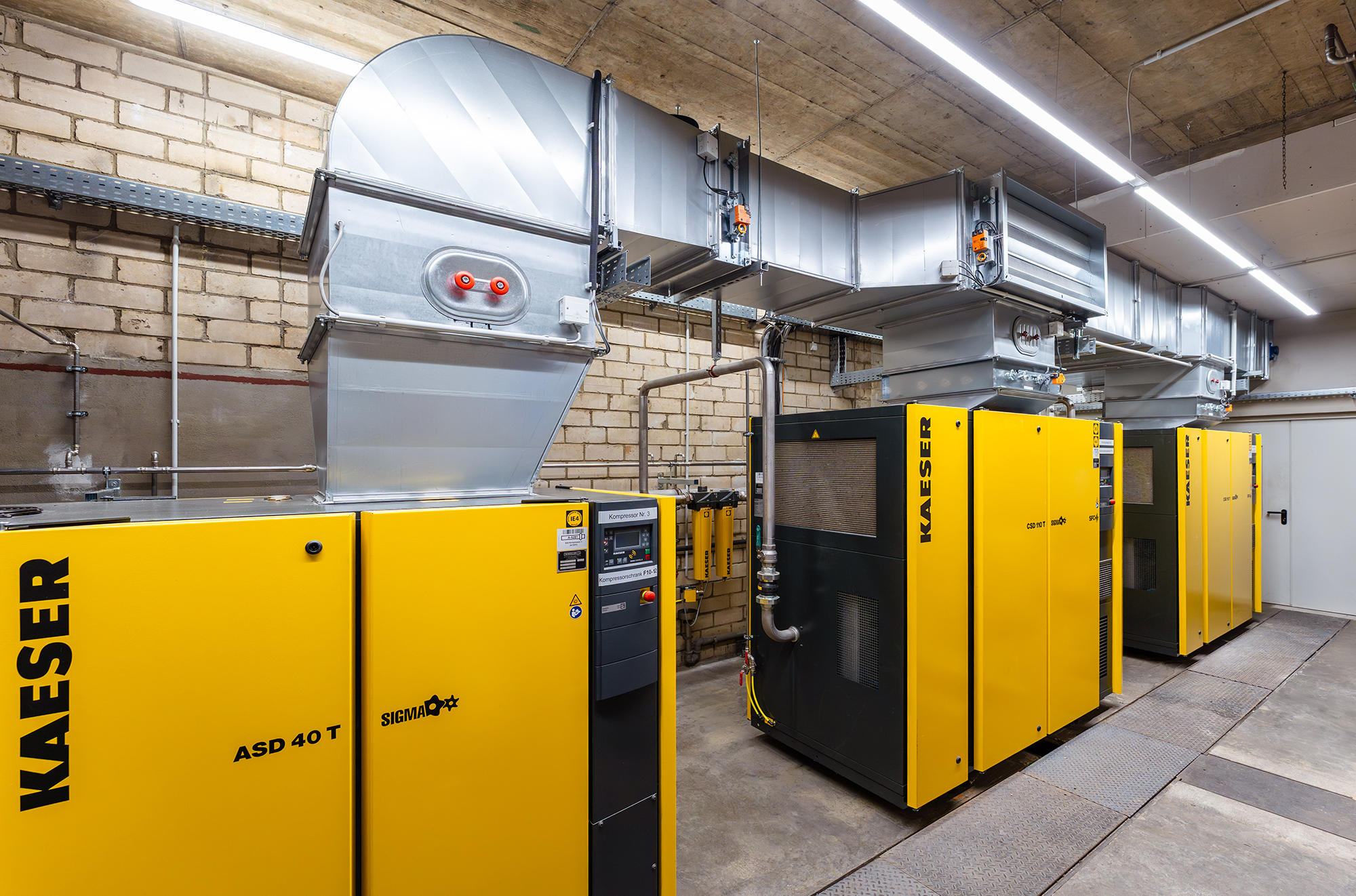
A leading manufacturer of longitudinally welded and drawn stainless steel tubes on the European market, Schoeller, has reached important milestones on the way to climate-neutral and more efficient production.
Schoeller shows that the metal industry can also take big steps towards climate neutrality. For example, the entire electrical energy requirement in Hellenthal, over 27 million kWh per year, is already covered by CO₂-neutral electricity.
The topic of waste heat has now been addressed. Compressed air and the compressors used for this are used in many manufacturing companies, but require a lot of energy – with corresponding CO₂ emissions. This is why Schoeller switched to compressors with modern electric motors at an early stage. Nevertheless, these systems still account for more than eight percent of the company’s total electricity consumption, putting them in third place among the largest energy consumers.
In order to significantly reduce their energy requirements, the Sustainability Management department took a step-by-step approach. First, the old compressors were replaced with new, highly efficient devices. Thanks to significantly better efficiency levels, electricity consumption was reduced by up to 50 percent. Despite the significantly higher efficiency, the operation of the new compressors still generates a lot of waste heat due to the process.
Natural gas boilers completely replaced
For this reason, the compressors in three plants have been equipped with heat recovery systems that make it possible to utilize up to 96 percent of the waste heat. Up to 80 degrees hot water is recovered from the waste heat of the air compressors, which can be used both in production and to heat the halls and offices. In another compressed air station, the waste heat in the form of heated air is used directly to heat the production hall. Thanks to the heat recovery systems, the natural gas boilers previously in operation have been completely replaced and the consumption of fossil fuels further reduced.
These sub-projects alone have resulted in direct savings of around 1.5 million kWh of natural gas per year, which corresponds to a CO₂ reduction of 300 tons. The roadmap presented by Schoeller in 2023 to achieve climate neutrality envisages a 40% reduction in CO₂ emissions by 2030 at the latest. The aim is to achieve completely CO2-neutral production at the Hellenthal site by 2035.
Schoeller is proud to be able to present concrete measures with measurable results just two years after the start of the transformation concept. “In a transformation process of this magnitude, the focus is on the planning work and the awarding of contracts. This is very complex and many processes have to interlock in order to achieve significant results. We are therefore all the more pleased to be able to show visible progress and therefore tangible reductions in the area of compressed air generation and heat recovery. This motivates everyone involved to continue on this path,” explains Energy Manager Fabian Könn, who is in charge of the heat recovery project for compressed air generation.
With this sub-project, Schoeller has significantly reduced its consumption of fossil fuels by using waste heat for heating. In the next step, Schoeller will focus on hydrogen consumption and production as well as connecting the plant to a wind farm and implementing a major project to use waste heat from cooling systems to heat the entire Plant II.
Web:
www.schoellerwerk.de


